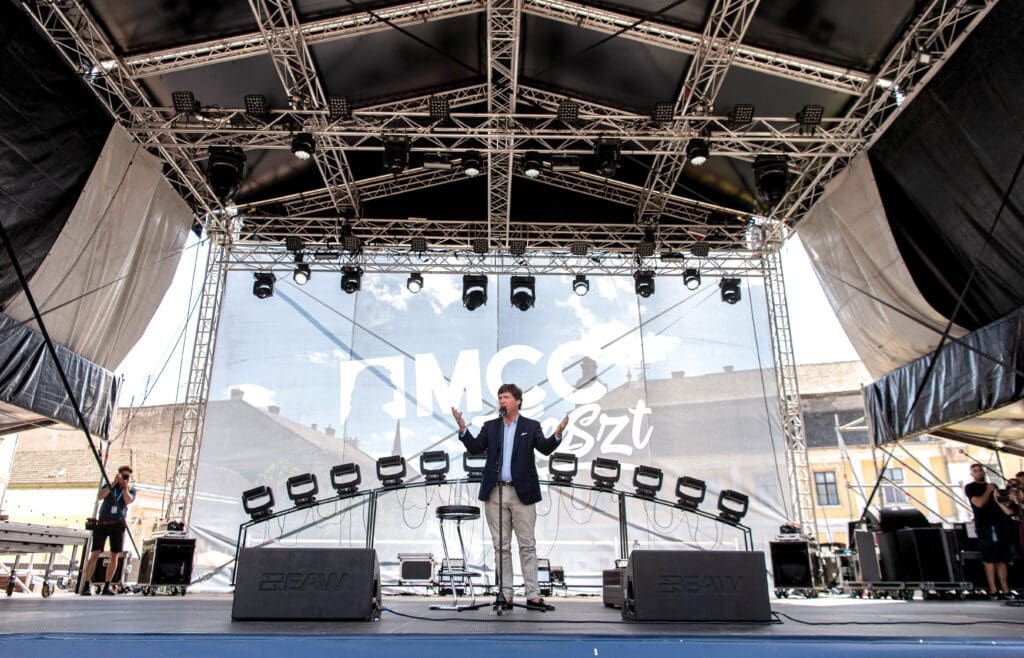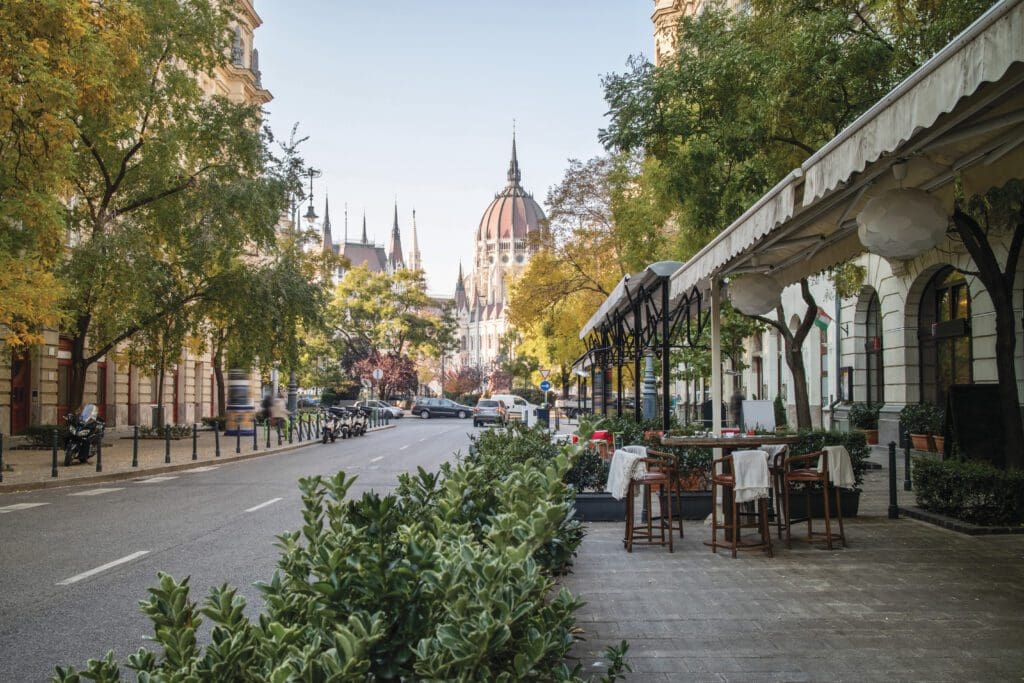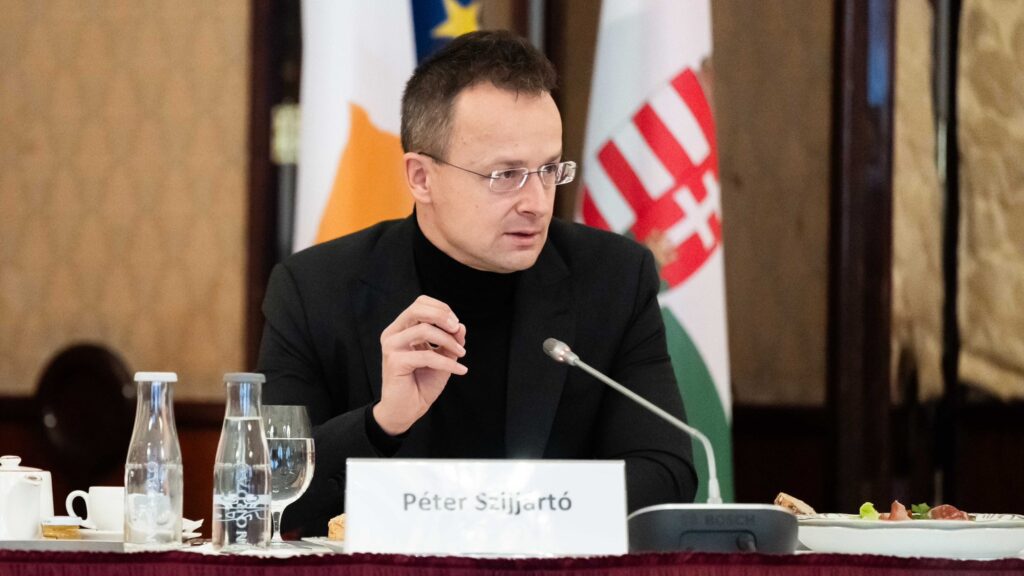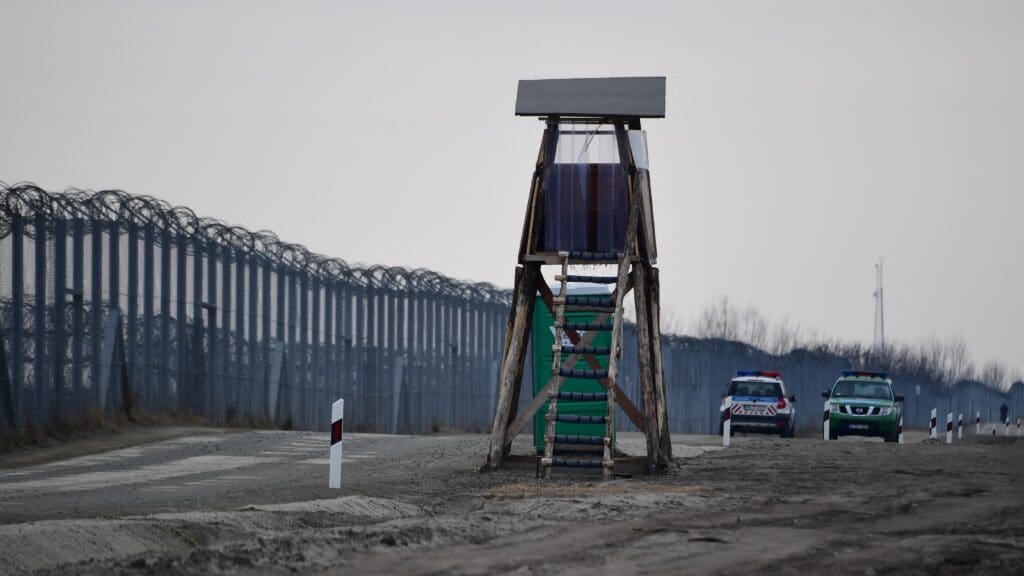After dinner one night this spring in a Western European city, a conservative politician said to me, ‘If I didn’t have responsibilities here as an elected official, I would move to Budapest.’ Why? The answer is in an e-mail I received from a prominent American conservative scholar, shortly after I relocated to Budapest in September. He wrote, ‘I envy your new home in Budapest, a place where most interesting moral, cultural, and political developments are converging.’
Envy? Yes. On my recent trip to the US, to speak at conferences, conservative intellectuals wanted to talk to me at length about Hungary. What is it like there? What is going on? How can I come over and see for myself?
I delight in telling them that even a left-wing atheist like Peter Boghossian, who was driven out of his US university for being anti-woke, found an intellectual home in the Hungarian capital, because he found it easier to have honest and substantive discussions there than in the United States, where everyone, left and right, has to worry about every word they say, for fear that it could cost them their career.
‘Hungary and its capital are becoming synonymous with intellectual conservatism’
If Hungary can be attractive even to an American man of the left who has been beaten and battered by woke ideologues, how much more welcoming must it be to Americans of the right? Among the rising generation of conservatives in the US and Western Europe, both Hungary and its capital are becoming synonymous with intellectual conservatism. This is no accident. In a 2019 meeting with visiting conservative speakers in Budapest, Prime Minister Viktor Orbán concluded by saying he hoped that we would all consider Budapest our intellectual home.
I was in the room, and thought it was a nice sentiment, but only that. After all, how could this former communist capital on the Danube, in a country of only ten million, whose people speak an unfamiliar, isolated language, ever become a beacon for conservative intellectuals?
And yet, it has happened. How? Why? There is a short answer, and a longer one.
The short answer is: Tucker Carlson.
The Fox News host holds a unique place in American conservative life. His popular television show is a must-watch for intellectuals and activists of the right. Unlike his Fox colleague Sean Hannity, whose show is a more conventional survey of right-wing issues and news, Carlson’s broadcast is willing to break with the ordinary to tell uncomfortable truths.
For example, the US conservative establishment has long considered Orbán’s Hungary to be anathema. They may not really know why, other than that is what they read in the papers. Carlson is a friend of mine, and unafraid to ask questions others will not. That is why I texted him in the spring of 2021, shortly after I arrived in Budapest, and suggested that he should come to Hungary and see for himself what it is like. The truth about this country, I said, is very far from what our media tell us.
It was no surprise to me that Carlson had already been thinking about coming to Hungary. I introduced him to someone in the government who could cut through bureaucratic red tape for Carlson and his crew, and the next thing you know, the conservative superstar was broadcasting from Budapest for a week.
That was the week that changed American conservatism. It is one thing when conservative writers like me and scholars like MCC’s Gladden Pappin testify to the good things happening in Hungary. It is quite another when the most important conservative media figure in America does.
Almost overnight, Carlson changed the perception of Hungary among American conservatives. Not among the conservative elites, necessarily, but among the grassroots, who had either never heard of Hungary, or who had never thought to pay attention to it. Later that autumn, at the National Conservatism conference in Orlando, Florida, I ran into Hungarian friends who were almost disoriented with delight.
‘I am used to going to conferences, and when people find out I’m from Hungary, they turn hostile’, one young woman told me. ‘Here, when they find out, they’re excited, and want to know more.’
That is the Tucker Effect. Carlson has a lot more authority with the conservative grassroots than does almost any other conservative politician or intellectual. To have him on Hungary’s side is massively important. His trip to Budapest changed everything.

But why? That is the longer answer, and it has to do with what we lack in the life of intellectual conservatism in the West.
Conservatism has been in serious trouble in America since at least the collapse of the Bush administration’s war in Iraq, which destroyed the trust the Republican Party had had on defence and national security issues since the Reagan years. Then, in 2008, the Wall Street catastrophe blew up the GOP’s mindless faith in markets and the inevitable goodness of financiers.
And yet, the Republican Party had no idea how to respond, other than to condemn Democrats, and to fall back onto repeating Reaganite clichés. The problem was not that Reagan was wrong, but that Reagan emerged with a set of solutions to problems that existed in the 1980s. The GOP had been coasting on those ideas long past their expiration date.
Then came Donald Trump, who defeated the entire GOP establishment and its dullard mandarins. This was a healthy development in most respects, but Trump was not able to govern effectively. Nor—to put it delicately—was his leadership style conducive to intellectual growth. To be sure, new populist currents of conservative intellectual thought have emerged from the Trump years, but they have not yet found focus or relevance in the real world.
Enter Viktor Orbán’s Hungary. American conservatives have discovered that it is a country where the government really does protect borders. It is a country whose leadership does not bow and scrape before international finance, big business, and the rigid dogmas of the free market. It is a country whose government is not afraid to defend the traditional family and religious belief. It is a country whose government defends the value of national sovereignty, not just for Hungary, but for all nations. It is a country whose government grasps the power of culture to shape politics.
And, above all, it is a country where conservatives in power are unafraid to use that power to press for their convictions—beyond what most American conservatives would be willing to do.
This final point, I think, is where Hungary is most relevant to the American situation. The United States is quite unlike Hungary in most respects, particularly with regard to ethnic homogeneity. What has worked in Hungary is not likely to work in America, without significant modification. This is to be expected. The most important thing for American conservatives to learn from Hungary, though, is what can be accomplished when you have a conservative government that actually believes what it says, and does what it promises to do.
‘[Hungary] is a country whose leadership does not bow and scrape before international finance, big business, and the rigid dogmas of the free market’
American conservatives—especially young ones—admire that. They have never seen it, so naturally it is appealing to them. It is as if there were a small country in the world that had a competent and innovative Donald Trump as its leader.
In Western Europe, most of the intellectual energy among conservatives goes to the populist parties. The established conservative parties were long ago absorbed into the Brussels Blob. Viktor Orbán has been a lightning rod for criticism and contempt by the same Brusselistas who hate ordinary Europeans that value their own national traditions, and who want strong borders and cultural conservatism. I have seen people from Spain’s Vox party, from Italy’s Lega and Fratelli d’Italia, from the Sweden Democrats, and from various French right-of-centre factions, meeting at events in Budapest and knowing that they are, in some sense, at home here. And now American conservatives are discovering this too.
It is too early to say there is a conservative intellectual scene in Budapest. But the parts are in place, and something is happening.
Establishment conservatives, like those who populate Washington think tanks, should realize that the future of conservatism is being written, in part, here on the Danube. Little is more depressing than yet another right-wing colloquium on the Potomac, where the usual suspects show up to talk about familiar topics, while the world outside the Imperial City burns. In Budapest, you can meet different kinds of conservatives from all over Europe, and have open and fruitful discussions about unconventional ideas.
For young activists, a sojourn in Budapest would do them some good. As the magazine editor Mark Granza said, if he had known how life would be for him in Budapest, he would have left London for the city long ago. Compared to American and Western European capitals, Budapest is affordable, and has a network of bars and coffee shops, which are a necessary part of developing any intellectual scene. Plus, institutions like the Danube Institute and the Matthias Corvinus Collegium host lectures, conferences, and other events that bring conservative luminaries in from all over the world.

When I was young and recently graduated from university, communism had just fallen, and the most literary-minded intellectuals of my generation went to Prague for the cheap rents, the cold beer, and the romance of living as expatriates, à la Hemingway and the Lost Generation. Nothing much came of that, but I imagine it was fun while it lasted.
Budapest today offers to young Western conservative intellectuals a lot of the same romance (on a budget), but also real substance, and a chance not just to talk about changing the world, but to learn how to do it. Thanks to visionary conservative political leadership and the favourable attention of an American media star, the intellectual right in the West is discovering that all roads lead to Budapest.







